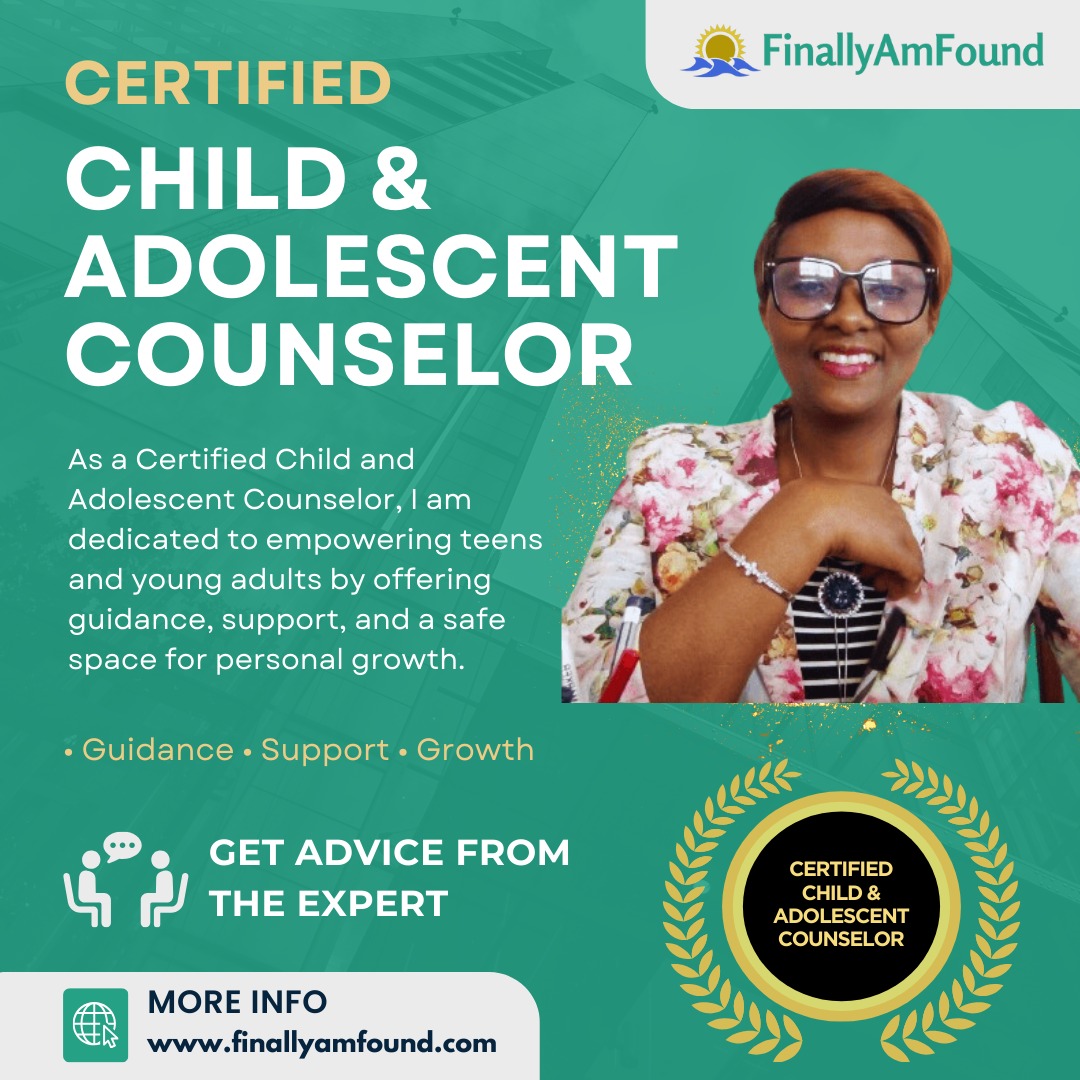I won’t lie – excessive fear is a dreadful feeling. It’s tormenting, and if left unchecked, it only grows. It is a response to a threat, which is normal, but there is a disabling fear if not managed. Normal fear helps us to stay alert and vigilant. For example, when taking out the garbage at night, it’s natural to feel fear or be worried since you need to be aware of your dark surroundings while hurrying to dispose of the garbage. This way, you can sense any potential danger instantly. But the same fear should not allow you to pile garbage in the house; you have to overcome it to live better, which applies to your daily happenings.
Managing Fear in Youth
In young people, it is important to learn how to manage fear at a young age. As you grow, you will encounter challenges of varying intensity, which can create anxiety that may later develop into a condition that needs various forms of therapy to treat or manage it. There are common issues that create fear in teens or young adults:
Phobias are extreme and irrational fears that can take many different forms. Some people may experience a fear of dark spaces, while others may be afraid of big empty spaces. Some may have a fear of heights, while others may experience anxiety when faced with injections or the sight of blood. Additionally, some individuals may have a phobia of animals or closed spaces, scared of being in elevators alone. WHAT DO YOU FEAR? Some other common fears that people experience include fear of strangers or crowds, fear of being shouted at, fear of not fitting in, fear of speaking in front of people, fear of the death of a parent, fear of parents separating, fear of rejection, fear of being abducted or shot, fear of loneliness, fear of becoming big or thin, fear of driving, fear of missing out on education, and fear of poverty. ADD YOUR FEAR TO THE LIST. These fears can significantly impact a person’s mental, physical, and emotional well-being, and it’s important to seek support and guidance if you’re struggling to manage them. That is where we come in, as we want you to have a quality, productive life.
Effects of Fear and Anxiety
Fear and anxiety can impede one’s self-authentic identity. However, it is essential to recognize that individuals possess a full range of abilities, regardless of physical challenges. One is complete as one was created and possesses everything necessary to achieve one’s desires and requirements. Embracing fear and refraining from addressing it significantly restricts one’s potential.
Fear and Self-Esteem in Teenagers
As a teenager, it’s common to experience fears that can negatively impact your self-esteem. You may feel like a lesser human being when you compare yourself to your peers and realize that you don’t have the same things that they have. These feelings of inadequacy can lead to envy, causing you to reject yourself and question your self-worth. When around others who seem to have it all, it’s easy to belittle yourself and see them as superhuman beings. However, it’s important to recognize that everyone has their own unique talents and strengths that make them valuable. By taking the time to appreciate yourself for who you are and recognizing your own worth, you can overcome these negative feelings and learn to see the value that lies within you.
Poor Choices and Consequences
When you have anxiety or neglected fear, you have a tendency to make poor choices. You choose the wrong type of friends to just fit in, live beyond your means by buying expensive things that you don’t need, marry an abusive partner, terminate pregnancies, steal, and choose to be absent in good, healthy relationships. Another consequence is poor performance in what you do because you can’t concentrate, whether at school or work. Emotionally, you develop anger issues and hate because you are feeling powerless; you react very negatively to every small thing. You engage in alcoholism and substance abuse to temporarily give you confidence, which later becomes an addiction. Fear buries your gifts and talents to the grave, or you cannot even discover them. Fear brings up medical issues like panic attacks, your heart getting used to beating so quickly, sweating a lot, not being able to breathe, and an impending doom. If this continues unmanaged, it may lead to high blood pressure and/or blood sugar later in life.
Solutions
Know Your Triggers
First, know your triggers and identify what makes you have anxiety. Take a moment to reflect on why you feel scared in certain situations. Start by identifying small triggers like fear of being on a merry-go-round or crossing a bridge over a river. What is it that your mind tells you? Is it the fear of feeling dizzy and falling to your death? Or is it the fear of being stranded in the middle with no one to rescue you? What is it that you feel?
Observe Your Perception
Observe the trend of your perception. Determine whether you have a negative mindset, where you tend to see the worst in everything, or a positive one, where you actively seek the best outcome in every situation. Fear can often lead us to see the worst-case scenario, but changing your mindset is possible. You must consciously try to change your perception, but it is achievable.
Use Affirmations
It’s helpful to have affirmations that can counteract fear, but it’s important to truly believe in what you say. These affirmations are best recited before bed or after waking up. Some examples of affirmations include: “I love heights,” “I am beautiful and smart,” “I am intelligent,” “I am assertive,” “I love how I look,” “My parents love me, and I love them,” “I have unmatched power within me to do all that I desire to do and more,” “I am optimistic,” “I am courageous,” “I am confident,” “I have self-control,” “I am peaceful,” “I am humble,” “I am attractive,” “I am patient,” “I am kind,” “I respect people,” “I attract positive and supportive friends,” “I am a positive thinker,” “I forgive,” “I am an achiever,” and so on. If these affirmations are repeated daily in a calm environment, with eyes closed and while lying flat, it can interrupt the negative wiring of the brain and set it to positive waves.
Review Your Thoughts
Please take a moment to review your thoughts before going to bed. Think about any anxiety you may have experienced today and try to understand why you felt that way. You can undo these negative feelings by using positive affirmations. Additionally, plan to do better the following day.
Get Enough Sleep
Getting enough sleep each night is important, typically 6-8 hours without being disturbed. Take breaks throughout the day to relax – you can lie down or sit comfortably and focus on relaxing your muscles. If you notice any tight areas, try whispering “relax” to help release the tension. This can be especially helpful after a busy day; fear, worries, and anxiety lead to tense muscles, which makes the effects worse.
Engage in Exercise
Engage in intensive exercises that involve your body, soul, and mind. For instance, you can participate in sports, biking, running, dancing, sit-ups, crunches, climbing, planks, and others. Doing so will boost your confidence and release happy hormones called dopamine and endorphins, which help lower stress, improve perception, and enhance concentration, focus, and willpower.
Face Your Fears
Face your fears head-on using all the above. It works, and you will never be the same again.
Make Your Desires Known to God
Lastly, make your desires known to God and allow Him to accompany you.
Hey, I’m Angeline, your RN and founder of Finally Am Found. With a heart for mentorship, I’ve been guiding teens and young adults since 2017. As a Registered Nurse, I blend medical expertise with personal experiences to create a Christ-aligned space for self-discovery. Connect with Angeline on Facebook and let the journey to self-discovery begin!















Very interesting points you have remarked, appreciate it for putting
up.
Thanks leora, for your remarks.
I think you have observed some very interesting details, thankyou for the post.
Thank you and hope it illuminates more
Some genuinely quality articles on this site, saved to favorites.
Thank you @NHL streaming Reddit alternative
Its good as your other content : D, thankyou for putting up.
Appreciated
Hello.This article was really motivating, particularly since I was searching for thoughts on this subject last Tuesday.
Thank you and may you find the right answers
I would like to thnkx for the efforts you’ve put in writing this blog. I am hoping the same high-grade web site post from you in the upcoming also. In fact your creative writing skills has inspired me to get my own site now. Actually the blogging is spreading its wings rapidly. Your write up is a good example of it.
Thank you, we appreciate your gesture
Hello there, You’ve performed a great job. I’ll definitely digg it and personally suggest to my friends. I’m confident they’ll be benefited from this site.
Thank you bulkhead lake Houston so much I’m truly grateful—and it’s a joy to know this space is shedding light that others can benefit from. I appreciate you sharing it with your friends
Very interesting topic, thanks for putting up.
You are welcome and thanks for the appreciation.
I am extremely impressed together with your writing abilities and also with the structure for your weblog. Is this a paid subject or did you customize it yourself? Either way keep up the nice quality writing, it’s rare to see a great blog like this one these days..
Thanks Josefa Hemesath for the thoughtful feedback.The blog is a custom project of labor of love supported by a great team that shares the vision. We’re passionate about delivering high-quality content and impactful, so your words are very encouraging
I am continuously browsing online for posts that can aid me. Thx!
Hoping to be part of your stairway as you rise to greater heights@functional fitness training tallahassee
Hello, I enjoy reading all of your article. I wanted to write a little comment to support you.
Your words really made my day—thank you @jbo for taking the time to comment and show support. I’m honored to have readers like you.
Excellent read, I just passed this onto a colleague who was doing a little research on that. And he just bought me lunch as I found it for him smile Therefore let me rephrase that: Thank you for lunch! “Feeling passionate about something is like getting a peak at your soul smiling back at you.” by Amanda Medinger.
Haha😄, sounds like a win-win—knowledge shared and lunch earned, Thanks so much for passing it along. That quote is beautiful too—definitely one to hold onto
That is really fascinating, You’re an excessively professional blogger. I have joined your feed and look forward to looking for extra of your excellent post. Also, I’ve shared your website in my social networks!
Wow—thank you, I’m so glad the blog speaks to you. Thanks for following along and for sharing it forward. That kind of support helps us grow and reach more hearts. There are more unmatched resources in this website. You are a blessing
I’ve been surfing on-line greater than 3 hours today, yet I by no means discovered any interesting article like yours. It is lovely worth enough for me. In my opinion, if all website owners and bloggers made excellent content material as you did, the web might be much more helpful than ever before.
I am not very superb with English but I line up this rattling leisurely to interpret.
You can definitely see your skills within the work you write. The world hopes for even more passionate writers like you who aren’t afraid to say how they believe. At all times go after your heart.
This is my first time visit at here and i am truly impressed to read everthing at one place.
It’s a shame you don’t have a donate button! I’d definitely donate to this fantastic blog! I suppose for now i’ll settle for book-marking and adding your RSS feed to my Google account. I look forward to new updates and will talk about this blog with my Facebook group. Chat soon!
Hello Rubin, we have added the donation capability here is the link https://www.paypal.com/donate/?hosted_button_id=RKBGDZPRSC9YW
I believe this is one of the so much significant information for me. And i’m happy studying your article. However want to statement on few normal things, The web site taste is ideal, the articles is actually excellent : D. Good process, cheers
guru
Great delivery. Solid arguments. Keep up the great spirit.
I think other website owners should take this website as an model, very clean and excellent user pleasant design and style.
I got what you mean ,saved to favorites, very nice internet site.
First of all I would like to say excellent blog! I had a quick question that I’d like to ask if you don’t mind. I was interested to know how you center yourself and clear your mind prior to writing. I’ve had difficulty clearing my thoughts in getting my ideas out. I do take pleasure in writing however it just seems like the first 10 to 15 minutes are wasted just trying to figure out how to begin. Any recommendations or tips? Thanks!
Hi i am kavin, its my first occasion to commenting anywhere, when i read this paragraph i thought i could also create comment due to this brilliant paragraph.
Hi there! I’m at work browsing your blog from my new apple iphone! Just wanted to say I love reading through your blog and look forward to all your posts! Carry on the excellent work!
I’m gone to inform my little brother, that he should also visit this website on regular basis to take updated from most recent reports.
This is really interesting, You’re a very skilled blogger. I have joined your feed and look ahead to in the hunt for more of your great post. Additionally, I’ve shared your site in my social networks.
Hi there to all, the contents present at this site are truly awesome for people experience, well, keep up the good work fellows.|
What’s up to all, the contents present at this web site are really awesome for people experience, well, keep up the good work fellows.|
I have been exploring for a little for any high quality articles or blog posts on this sort of space . Exploring in Yahoo I eventually stumbled upon this website. Studying this information So i?¦m satisfied to express that I have an incredibly just right uncanny feeling I discovered exactly what I needed. I such a lot definitely will make sure to do not omit this website and give it a glance on a constant basis.